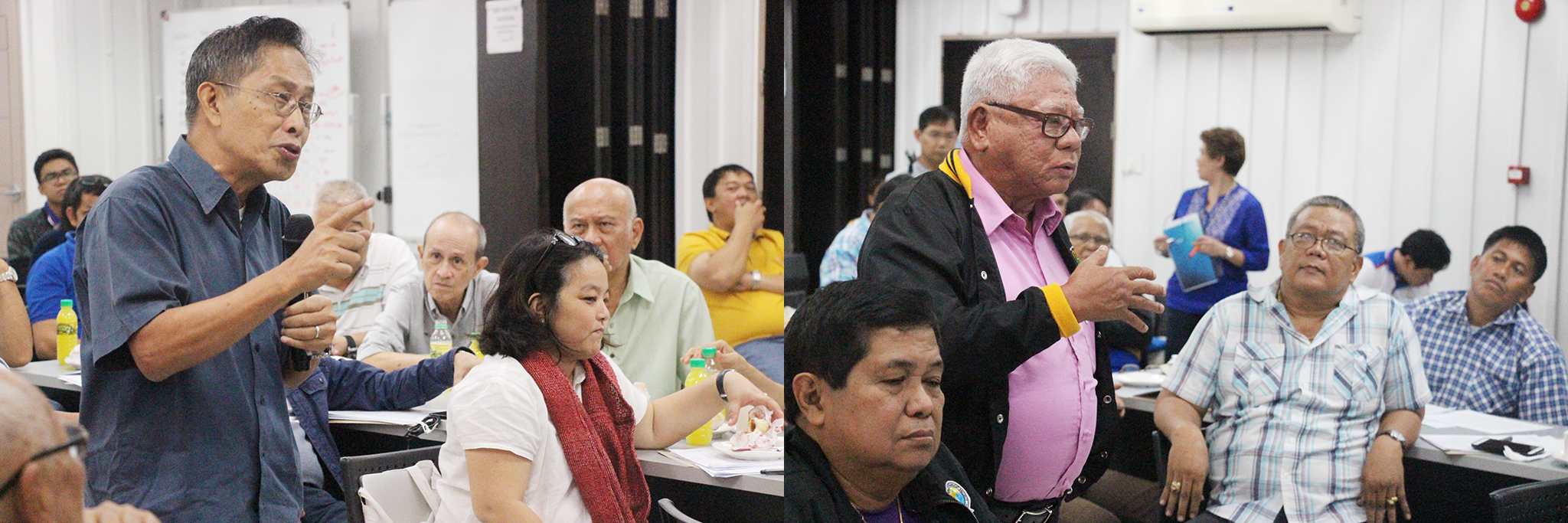
The Consultation on the Draft Implementing Rules and Regulations (IRR) Guidelines on Various Department of Agriculture (DA) Programs/Projects has paved the way for the concerned government agencies and private sectors to comment on the draft IRR of the Agricultural Competitiveness Enhancement Fund (ACEF) Extension Law.
Organized by the Philippine Council for Agriculture and Fisheries (PCAF), the consultation gathered more than 100 participants on July 25, 2017 at the DA New Building in Quezon City to solicit inputs and recommendations for the improvement of ACEF IRR Extension Law and other guidelines.
The ACEF, a loan and grant program of the national government of agriculture and fisheries, was created by virtue of the Agricultural Tarrification Act or RA 8178 of 1995.
It was created in 1996 after the Philippines joined the World Trade Organization (WTO) as a safety net for farmers and fishermen affected by the trade liberalization policies of the government.
Except for rice, the fund was also established by replacing quantitative restrictions on agricultural products with tariffs.
To extend the utilization of ACEF, Congress in 2008, amended RA 8178 through the enactment of RA 9496 – “An Act to Extend the Utilization Period of the ACEF” which converted ACEF into a revolving fund.
In May 2016, Congress enacted the RA 10848 – “An Act Further Extending the Period of Implementation of the ACEF” which extended the fund’s utilization until 2022.
It mandated the ACEF Executive Committee (EXECOM) to provide new policies and guidelines necessary for the planning, administration, coordination, and monitoring of the utilization of the fund which is the Draft IRR that was presented during the consultation.
Drafting the ACEF IRR
“There is a need to maximize the utilization of the ACEF for the enhancement/development of the agriculture and fisheries sectors to benefit the small fishers and farmers,” stressed Evelyn Laviña, Undersecretary for High Value Crops and Rural Credit and Chairperson of the ACEF National Technical Committee, during the consultation.
ACEF allocates eighty percent (80%) for credit/loan assistance, ten percent (10%) for the R&D activities, and another ten percent (10%) for the implementation of a Grant-in-Aid program.
Thus, PCAF Committee on Food Staples and International Trade Chairperson, Raul Montemayor, recommended to not just focus on the credit/loan assistance but also allocate funds for common facilities and services, particularly, for the establishment of agri-fishery laboratory and testing services.
According to Montemayor, there are a lots of untapped loanable funds with Land Bank of the Philippines (LBP) for the agriculture and fisheries sector.
Laviña related that a laboratory for testing of fisheries and other agricultural produce was already established which will operate in 2018.
The long list of stringent LBP requirements for credit facility application was also raised.
There was a proposal to simplify the procedures and reduce the required documents to make the grant more accessible to farmers.
Further, tapping of other banking institutions in releasing funds or granting loans besides LBP was also suggested.
However, Undersecretary for Special Concerns and Head of ACEF Scholarship Program, Atty. Ranibai Dilangalen reiterated that pursuant to RA 10848, the LBP is the conduit for ACEF credit facility.
Aside from these, other suggestions that came up during the consultation were: the consideration of setting aside funds from ACEF for grants to upgrade the Agricultural Machinery Testing and Evaluation Center (AMTEC), establishment of testing centers for agri-fishery machinery, among others.
It was also suggested to defer the crafting of the IRR and amend the ACEF Extension Law to consider its original objective of providing safety nets for farmers and to ensure the competitiveness of the agri-fishery products within the context of trade liberalization.
“ACEF was created to serve as a special fund to prepare us of the impact of international trade agreements and it is not just an ordinary livelihood fund,” Regional Agricultural and Fishery Council (RAFC) VI Chairperson, Ricardo Provido, said.
Furthermore, the consultation also discussed the draft guidelines on the accreditation of Civil Society Organizations (CSOs) to be engaged by the DA in the implementation of programs/projects and on the quality standards in the production of planting materials of fruit and plantation crops. – LC











